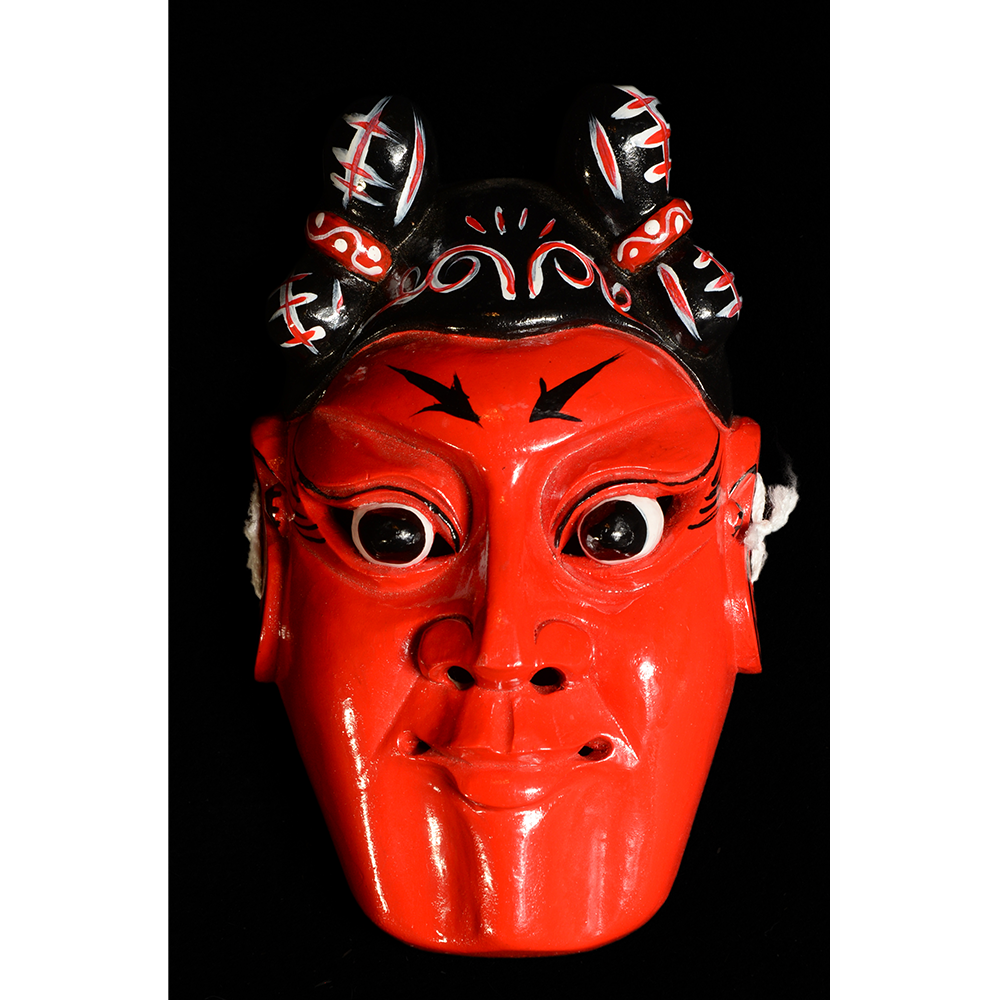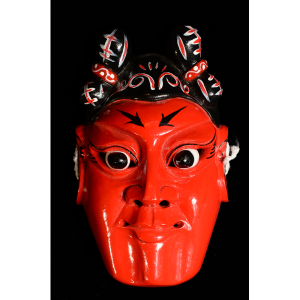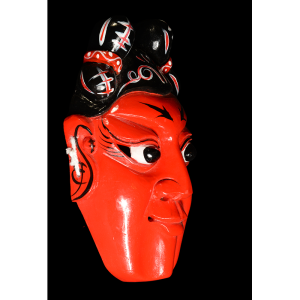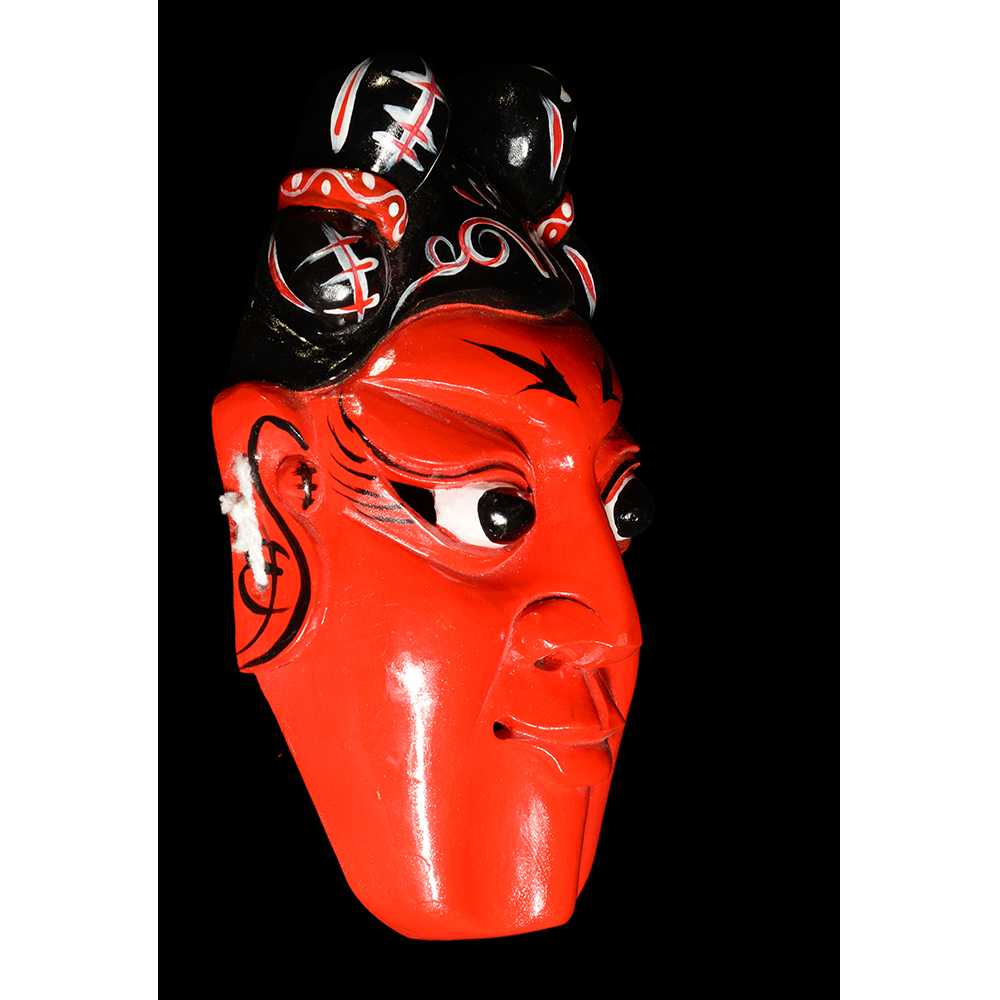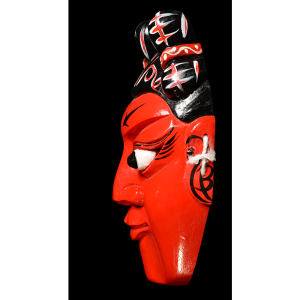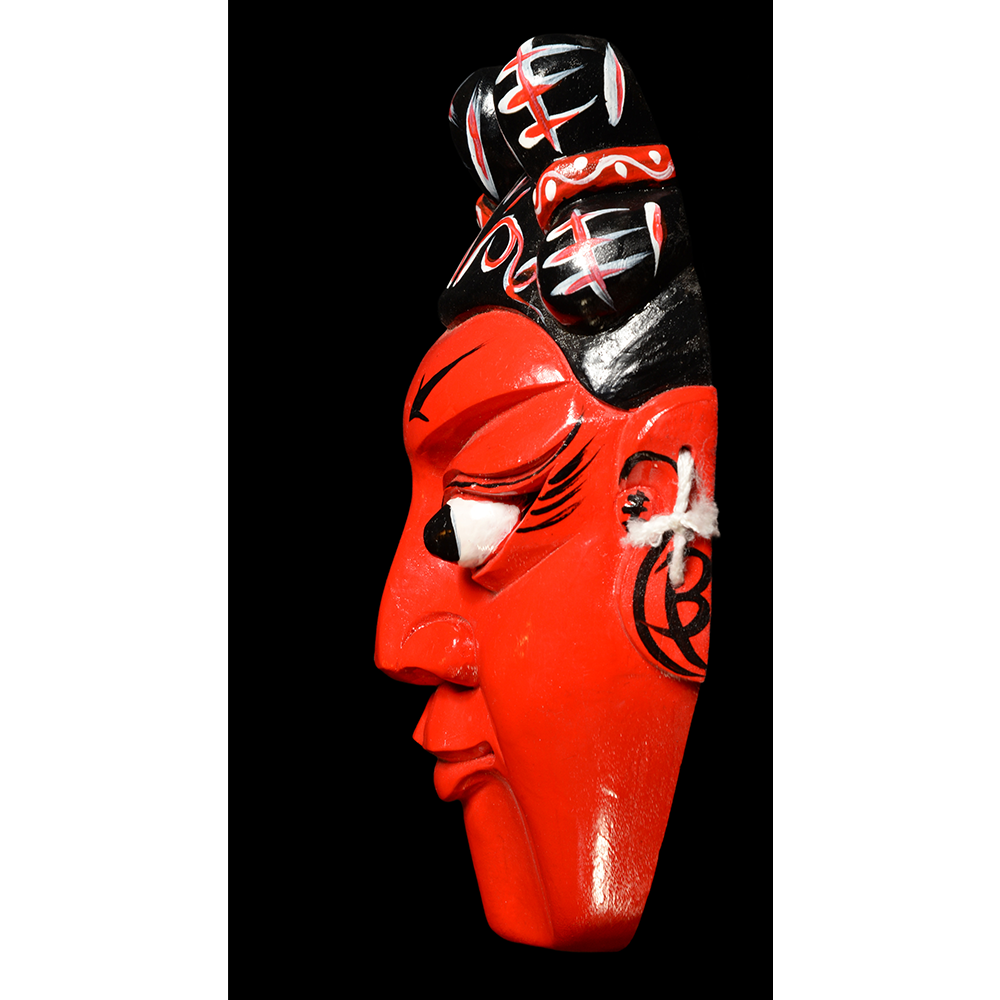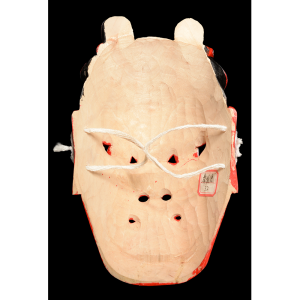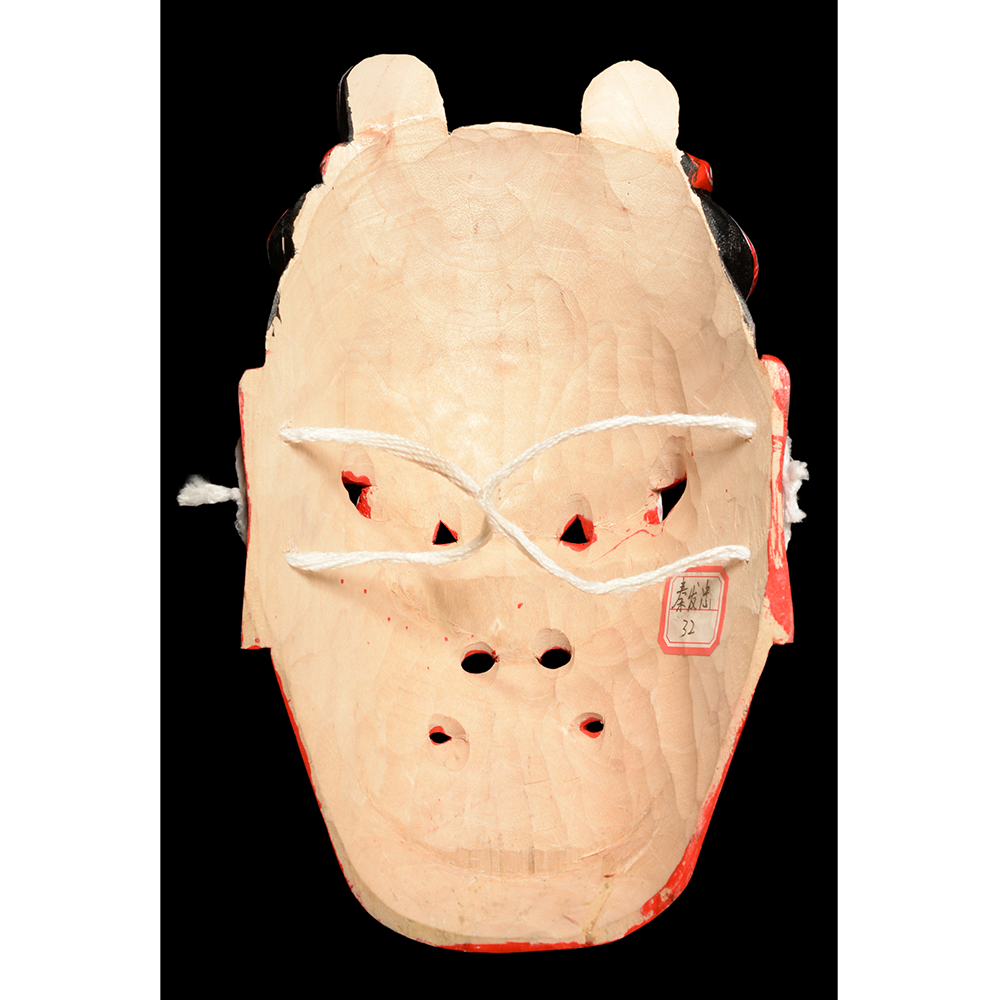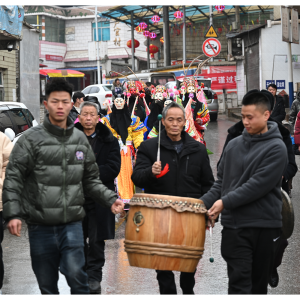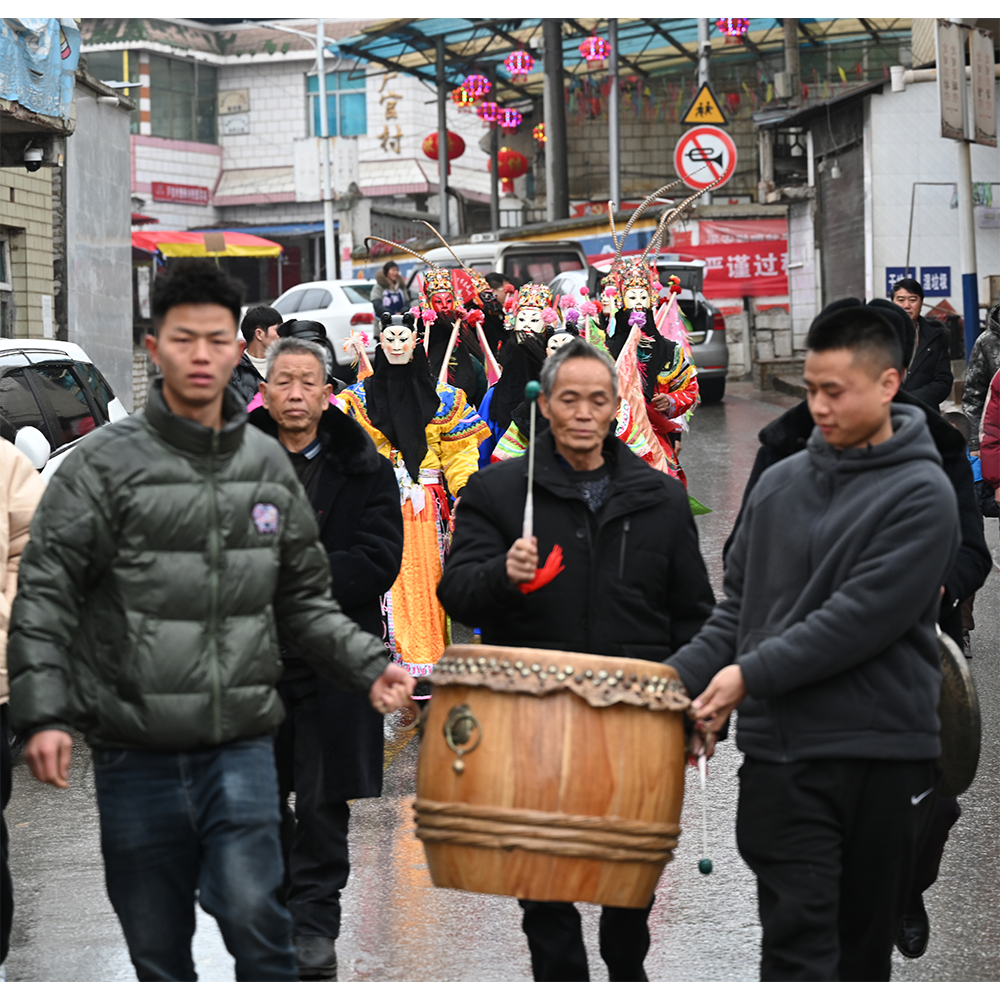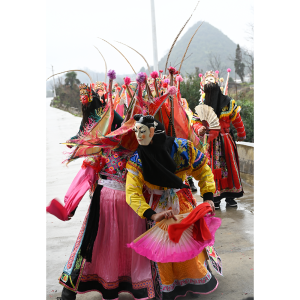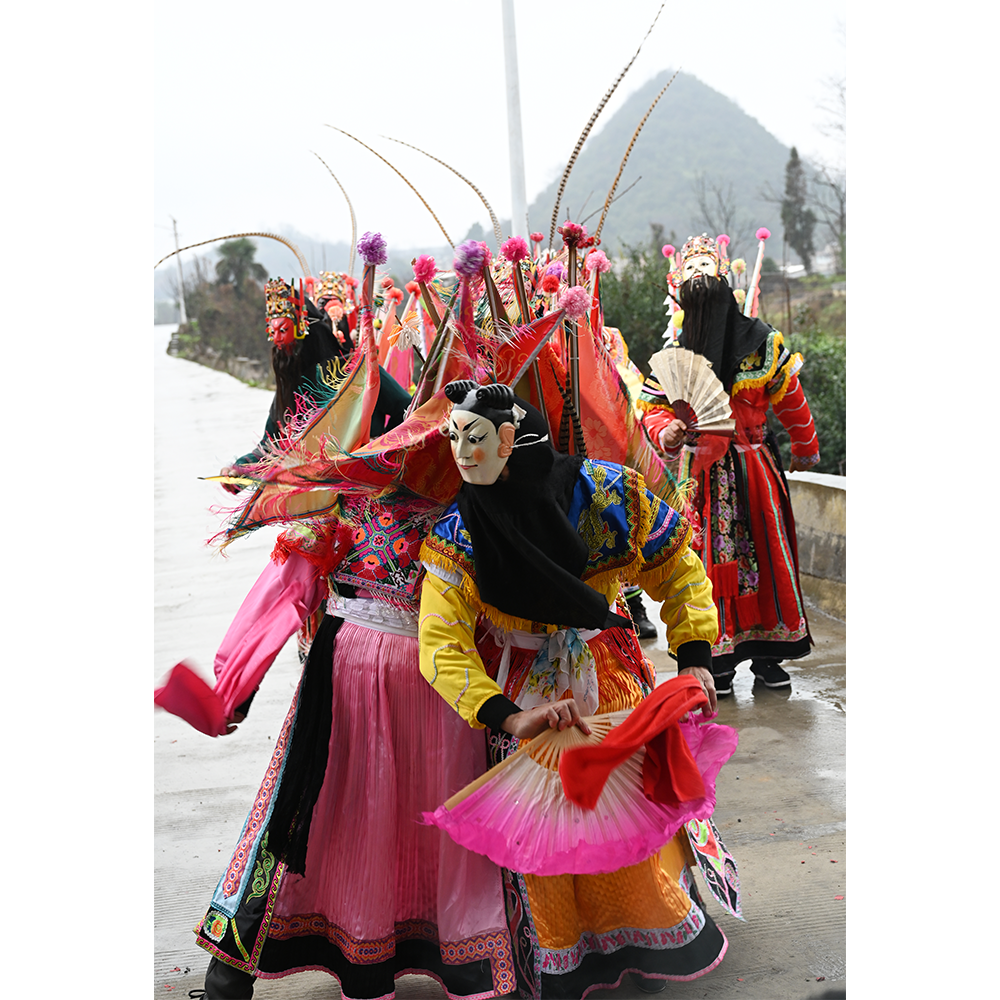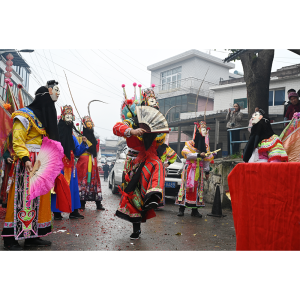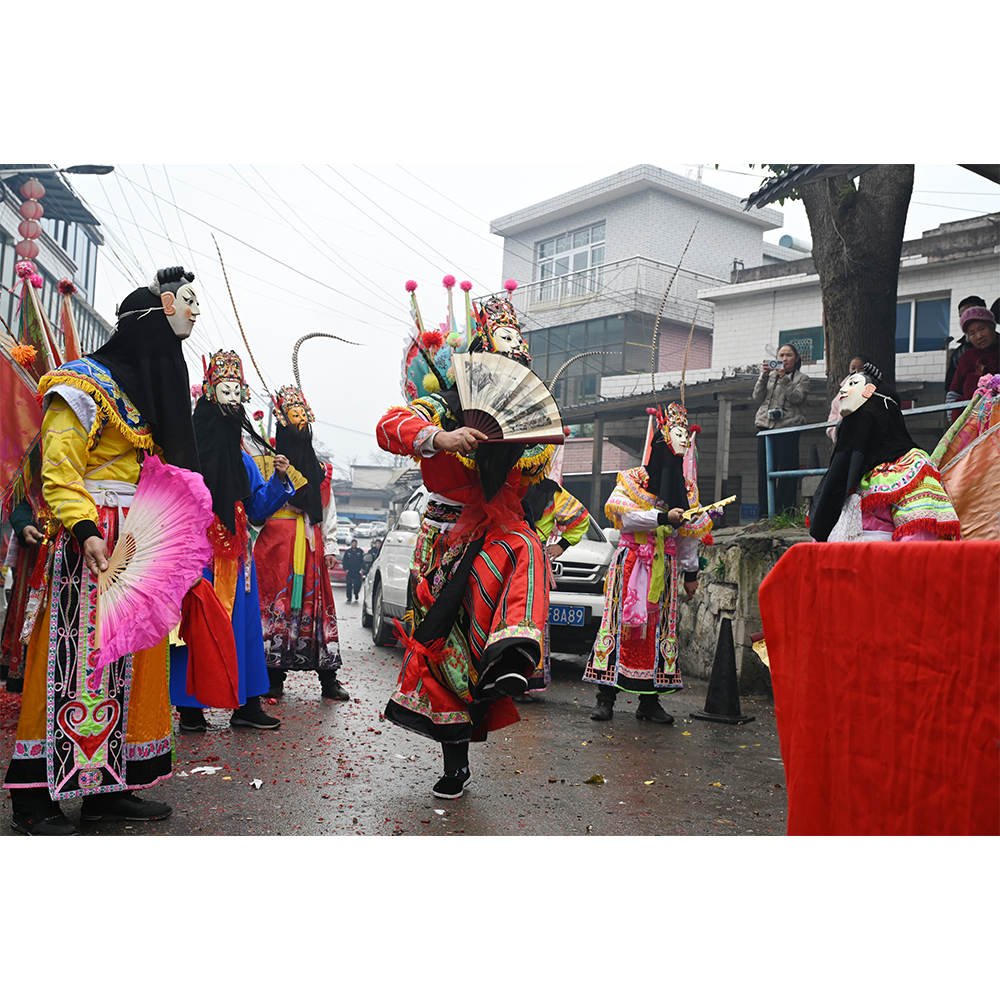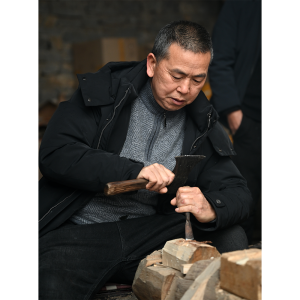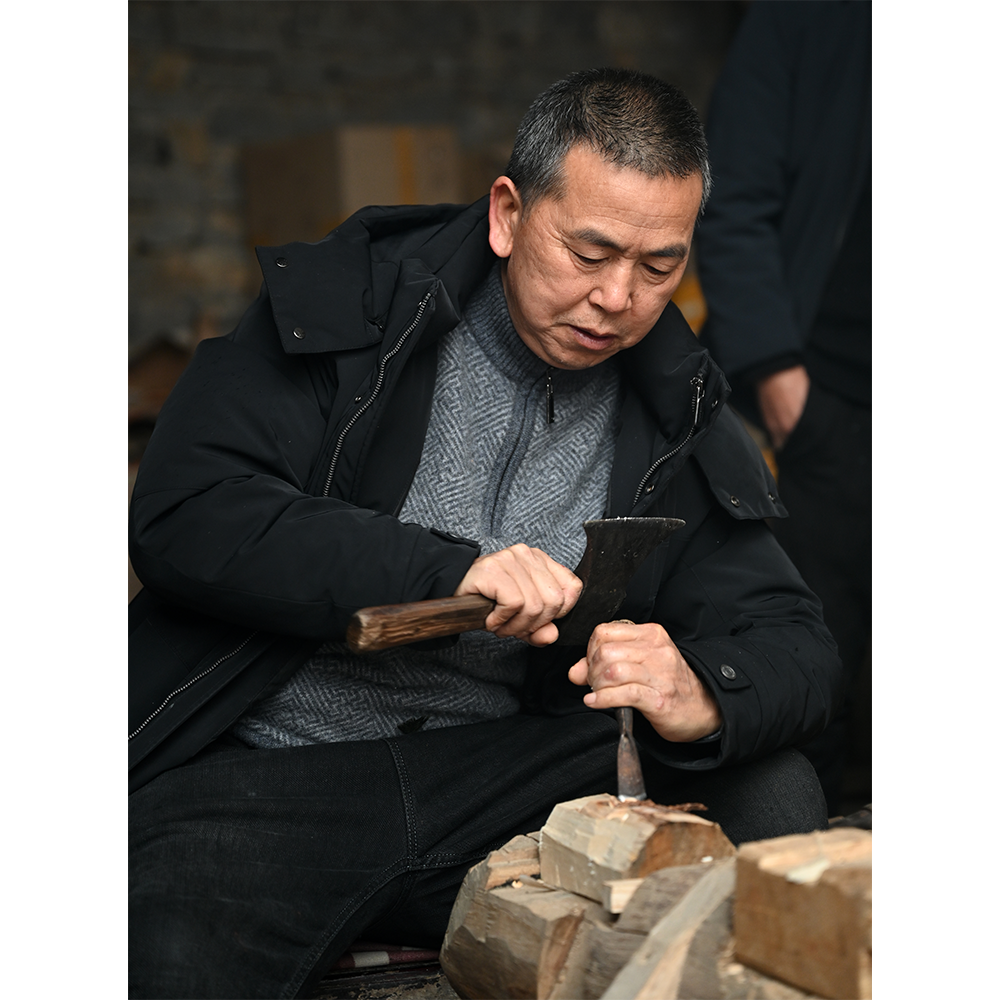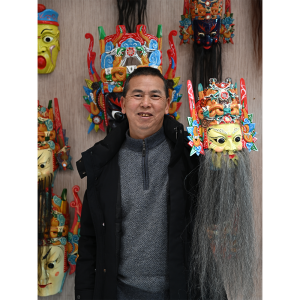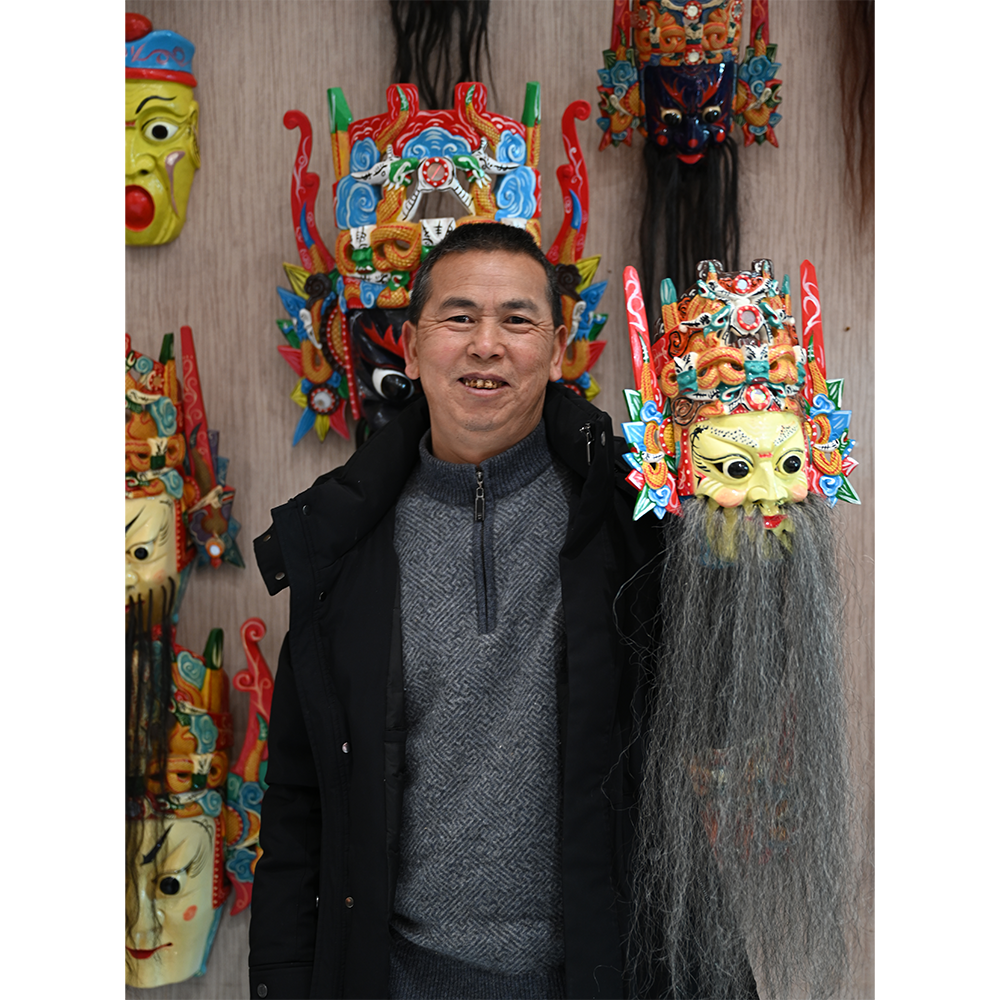TITLE: Xiaotong Nuo Mask
TYPE: face mask
GENERAL REGION: Asia
COUNTRY: China
SUBREGION: Guizhou
ETHNICITY: Han
DESCRIPTION: Nuo mask of Xiaotong/Xiaojun/Xiaobing (Little Boy/Little Soldier)
CATALOG ID: ASCN014
MAKER: Qin Fazhong (Zhongnan, 1972- )
CEREMONY: Nuoxi
FUNCTION: Celebration; Entertainment; Protection/Purification
AGE: 2022
MAIN MATERIAL: wood
OTHER MATERIALS: acrylic paint; string
The Nuoxi of China may be traced back to the Ming Dynasty (1368-1644 CE), possibly much earlier (some believe the Shang and Zhou Dynasties) and was popular in large parts of the empire, but especially along the southern borders, where it was a form of entertainment for the imperial troops. It evolved from a sacrificial rite performed by shamans into a more dramatic form, with both Buddhist and Taoist overtones. Nuo opera is based on historical stories and stories based on the Taoist religion and all roles (including female roles) are performed by men. It evolved into a popular form of entertainment and was eventually accompanied by an orchestra of Chinese instruments. The Nuo opera never quite lost its shamanic connection, however, and also was used to exorcise evil spirits at the home of sick persons. The sacred connection is evident from a religious ceremony that always precedes the opening of a Nuo opera. In addition, a wooden statue representing the originator of the opera is present at every performance, and nobody except the opera troupe may touch props used in the performance. Although the Chinese Communist Party attempted to suppress Nuo performances and eliminated it from most of the country, the opera continues to be performed in three southern provinces of China today (Guangxi, Guizhou, and Jiangxi).
The Han people make up the largest ethnic group in China. This character, variously called Xiaotong (萧统) (little boy), or Xiaojun or Xiaobing (both meaning little soldier), is used in the nuo “ground opera.” It is a stock character that can be used in any play to represent a boy or a young and inexperienced soldier.
This mask was danced from 2022 to 2024.
